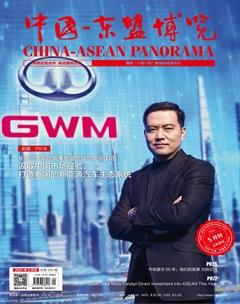中國發展:昨天從“1”到“10”求擴展,明天從“0”到“1”求創新
Dulyapaween Kronsaeng 黃怡哲

“從‘十三五到‘十四五,高質量發展將成為中國經濟社會發展的主題。”泰國國家發展管理學院、社會發展與環境管理學院李仁良博士在接受本刊記者采訪時這樣說道。
“十四五”規劃并未設定明確的經濟增長目標,在中國五年規劃史上是首次。中國不再追求單純的數量增長,而是從高速增長階段轉向高質量發展新階段,同時將2021年經濟增長目標設定為6%以上,對于作為世界第二大經濟體的中國而言,這是相對較高的增速。
“中國強調高質量發展,從‘十四五規劃中可以看出,重點并非是基礎設施建設,而是對科技創新加大投入,以及在包括教育、公共衛生等方面改善人民生活品質。”李仁良博士說。
他指出“十四五”科技創新規劃中,主要有幾個要點:一是強化國家戰略科技力量,建設空間環境地基監測網、海底科學觀測網、空間環境地面模擬裝置等;二是面向世界科技前沿,建設高海拔宇宙線觀測站等;三是科技成果轉移轉化,如,高能同步輻射光源、高效低碳燃氣輪機等;四是改善人民生活品質,如,醫學研究、跨尺度生物醫學、動物模型表型遺傳研究、地震科學等。
“過去,中國擅長從‘1擴展到‘10,經濟實力不斷提升,而現在更上了一個臺階,開始從‘0到‘1的突破,擺脫對芯片、半導體等核心關鍵技術的國外依賴,突破卡脖子的技術瓶頸。”李仁良博士說。
“十四五”規劃提到,中國研發支出將年增7%,這是一個較高的水平,進一步推動國家創新發展,專利申請數量也將隨之增長。據統計,中國每萬人口發明專利擁有量將從2020年的6.3件增加到2025年的12件。
同時,中國仍將高度重視數字經濟發展,大力支持人工智能、通信技術等,使數字經濟規模持續擴大,所占國家經濟結構比重也將越來越大。
社會方面,“十四五”規劃將重點改善人民生活品質,人均純收入實際增速將接近國家GDP增速,重要衡量指標是到2025年失業率控制在5.5%以內。
勞動年齡人口平均受教育年限將從2020年的10.8年增至2025年的11.3年,意味著中國公民將接受到更好的教育。
民生福祉方面,每千人口擁有執業(助理)醫師數從2020年的2.9人,要提高到2025年的3.2人。國民的基本養老參保率要從2020年的91%,提升到2025年的95%。此外,居民人均預期壽命將從2020年的77.3歲提高到2025年的78.3歲。
綠色發展方面,到2025年,單位國內生產總值能耗和二氧化碳排放分別降低13.5%、18%,全國森林覆蓋率達到24.1%。
李仁良博士說,從“十四五”規劃中可以看出,中國推動經濟、技術、生態系統、環境、創新、教育、民生等多方面高質量發展,符合2035年遠景目標,即到21世紀中葉全面建成富強民主文明和諧美麗的社會主義現代化強國。
中國經濟實現增長,將給包括泰國在內的東盟國家帶來重要機遇。隨著中國經濟規模變大,消費需求增長,將為包括水果在內的泰國農產品出口中國帶來機會。
隨著經濟規模不斷擴大,相較于西方國家,中國將更傾向于加大對東盟鄰國的貿易投資。
作為全球技術的領導者,來自中國的科技產品將不斷影響到包括泰國在內的東盟國家,不斷擴大海外市場和加大海外投資力度。中國資金雄厚,有技術研發能力,近期,中國汽車巨頭長城汽車、名爵已進軍泰國市場。一個不斷發展、日益強盛的中國,將給世界帶來更多機會。
“From the 13th to the 14th Five-Year Plan, high-quality development will be the theme of Chinas economic and social development,” said Dr. Li Renliang, who comes from the National Institute of Development Administration and Graduate School of Social and Environmental Development in the interview with the reporter from China-Thailand Panorama.
No clear goal of economic growth has been set in the 14th Five-Year Plan, which is the first time in the history. China no longer pursues the simple growth in number. Instead, Chinas economy has been transitioning from the phase of rapid growth to the stage of high-quality development. Meanwhile, a 6% growth has been set as the goal for the economy in 2021 — a relatively high growth rate for China, the worlds second largest economy.
“High-quality development has been emphasized. According to the 14th Five-Year Plan, priority is no longer the construction of infrastructure but investment in technological innovation and improvement on education, public health, and quality of life,” said Dr. Li.
The technological innovation in the 14th Five-Year Plan mainly includes 4 major strategies. The first one is to enhance the national strategic technological power, constructing a ground-based monitoring network for the space environment, seabed scientific monitoring network and ground simulator for the space environment, etc. The second strategy is to develop world-facing cutting-edge technology such as building the Large High Altitude Air Shower Observatory (LHAASO). The third is to commercialize scientific and technological outcomes such as the High Energy Photon Source (HEPS) and the efficient low carbon gas turbine, etc. The last one is improving peoples well-being through technologies in medical research, cross-scale biomedical science, phenotypic study on the heredity of animal models and Seismological Science, etc.
“In the past, China did well in economic expansion and gained considerable economic achievement, which is like developing from 1 to 10. Now, China is off to a new stage. It is getting rid of its dependence on foreign countries in key fields like silicon chips and semi-conductor technology, breaking the technology barrier, which is like undergoing the process of from ‘0 to 1 breakthrough,” said Dr. Li.
It is mentioned in the 14th Five-Year Plan that the growth rate of budget in research and development will be 7% on a year-on-year basis, which is quite high. This is likely to further promote the nations innovation, along with an increasing number of patent applications. According to the statistics, the number of invention patents per 10,000 people is likely to reach 12 by 2025, increased from 6.3 in 2020.
Meanwhile, China still lays stress on the digital economy, developing AI technology and telecommunication, expanding the scale of the digital economy and increasing its ratio in Chinas economic structure.
For social development, the 14th Five-Year Plan attaches importance to improving peoples life quality, making the actual growth rate of net income per capita approximately in accordance with the growth rate of GDP. The key measurement is to keep the unemployment rate under 5.5% by 2025.
The average length of schooling for the working-age population will increase from 10.8 years in 2020 to 11.3 years in 2025, signifying better education for Chinese citizens.
As for peoples well-being, the number of licensed (assistant) physicians per 1000 people is 2.9 in 2020 with a goal to increase to 3.2 by 2025. The basic old-age insurance participation rate is to increase from 91% in 2020 to 95% by 2025. Aside from these, the average life expectancy is to be 78.3 in 2025, slightly higher than the 77.3 in 2020.
For eco-development, by 2025, energy consumption per unit of GDP and emission of carbon dioxide will respectively decrease by 13.5% and 18%. The nationwide rate of forest cover will reach 24.1%.
According to Dr. Li, the 14th Five-Year Plan demonstrated Chinas determination to promote high-quality development in areas like economy, technology, eco-system, environment, innovation, education and peoples well-being, etc., all of which follows the Long-Range Objectives Through the Year 2035 and conducive to build China into a great modern socialist country that is prosperous, strong, democratic, culturally advanced, harmonious, and beautiful by the mid-century.
Chinas economic growth will bring significant opportunities to ASEAN countries including hailand. With Chinas economy growing larger and the consumption growing higher, agricultural products like fruit from Thailand will have more opportunities to enter the Chinese market.
With the economic expansion, China prefers to enhance trade and investment with its ASEAN neighbors over western countries.
As one of the leaders of world technology, products from China keep projecting their influence to ASEAN countries like Thailand and keep expanding overseas market and increasing overseas investment. China has abundant funds and research ability. Recently, Chinas automobile giant, Great Wall Motor and MG of Shanghai Motor have entered the Thai market. A developing, prosperous China will bring more opportunities to the world.

